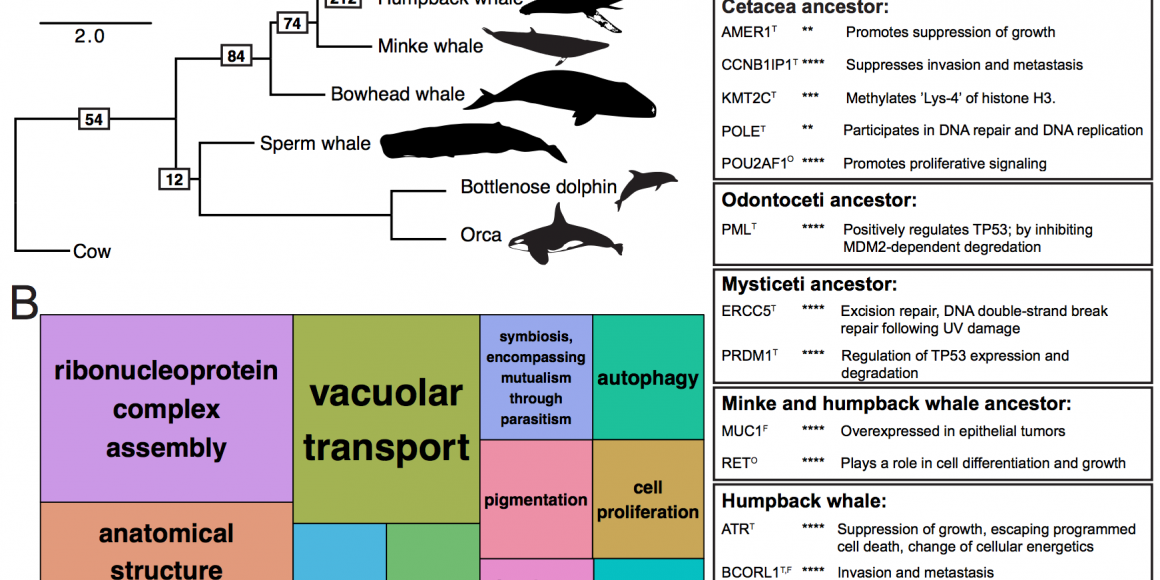In the May issue of MBE we have published the outcome of a collaboration with Dr Marc Tollis, Prof Carlo Maley, Prof Per Palsbol and others where we sequenced and analysed the genome of the humpback whale. The paper aimed to Peto’s Paradox – where large-bodied and long-lived animals do not suffer higher risks of cancer mortality than humans and more generally to understand other cetacean adaptations. We compared the genomes of 10 cetacea and dated the rorqual radiation to the Miocene or earlier. We could also infer that perturbations in abundance and/or the inter-ocean connectivity of North Atlantic humpback whale populations likely occurred throughout the Pleistocene. Our comparative genomic results suggest that the evolution of cetacean gigantism was accompanied by strong selection on pathways that are directly linked to cancer. Large segmental duplications in whale genomes contained genes controlling the apoptotic pathway, and genes inferred to be under accelerated evolution and positive selection in cetaceans were enriched for biological processes such as cell cycle checkpoint, cell signaling, and proliferation. We also inferred positive selection on genes controlling the mammalian appendicular and cranial skeletal elements in the cetacean lineage, which are relevant to extensive anatomical changes during cetacean evolution. We hope you enjoy the paper – it has been a real pleasure working together on it.
Share This Article
Author: admin
This is the administrative account for the Computational & Molecular Evolutionary Biology Group at the University of Nottingham. Please browse through our site and contact us if you have any questions.






